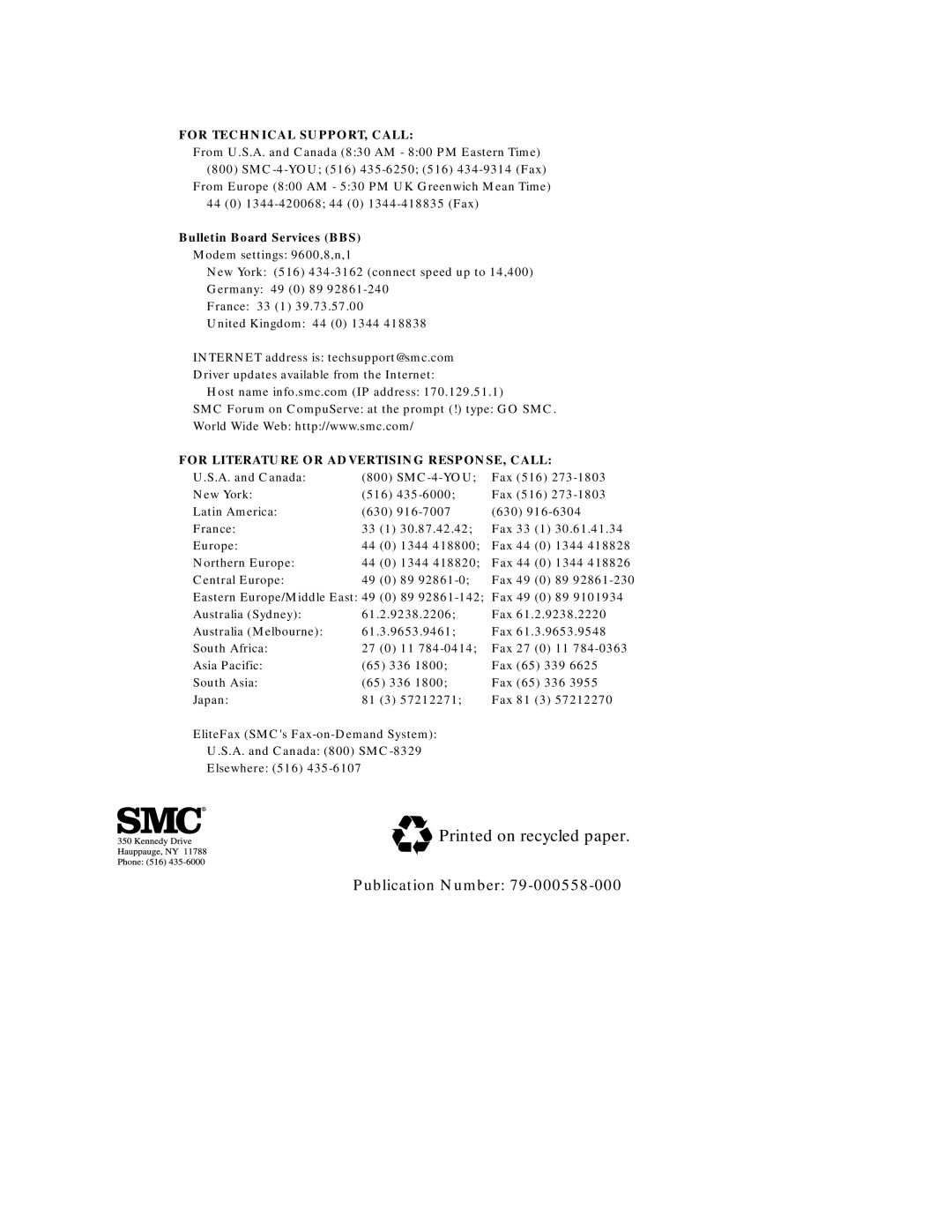Ethernet ISA Network Cards specifications
SMC Networks, known for its innovative networking solutions, produced Ethernet ISA network cards that made significant contributions to the realm of computer networking during the late 20th century. These cards represented a pivotal development in the transition from traditional networking to more modern, high-speed connections, catering to the needs of both businesses and home users.One of the main features of SMC Networks Ethernet ISA network cards was their ability to provide a reliable wired connection using the Industry Standard Architecture (ISA) bus. This interface facilitated an easy installation process on compatible devices, ensuring plug-and-play capabilities and broad compatibility with various operating systems available at the time, such as DOS and early versions of Windows. Users appreciated the straightforward setup process, which allowed even less technical individuals to integrate networking functions into their computers seamlessly.
SMC's Ethernet ISA network cards typically supported a data transmission rate of 10 Mbps, which was the standard speed for Ethernet technology during their prime. This speed, while modest by today’s standards, represented a significant improvement over older serial and parallel communication methods, allowing for faster file transfers and improved networking capabilities among connected devices.
The cards also featured an onboard 12-pin connector for attaching an external transceiver, supporting twisted pair cabling and coaxial connections. This versatility allowed users to choose their preferred cabling solutions based on their specific network environment. Furthermore, the Ethernet ISA cards supported the CSMA/CD protocol, which effectively managed data collisions in a shared network environment, enhancing the reliability and efficiency of data transmission.
Durability and robust design characterized SMC Networks’ approach to network card manufacturing. The cards were built to withstand the demands of various operating environments, ensuring stable performance over extended periods. Additionally, the compatibility with several popular networking protocols made these cards suitable for a broad range of applications, from simple peer-to-peer networks to more complex enterprise systems.
Overall, SMC Networks Ethernet ISA network cards played a crucial role in evolving networking technologies. Their reliable performance, ease of installation, and compatibility made them a valuable asset for organizations and individuals looking to harness the power of computer networking effectively. As technology advanced, these cards paved the way for the development of faster and more sophisticated networking solutions that we rely on today.

